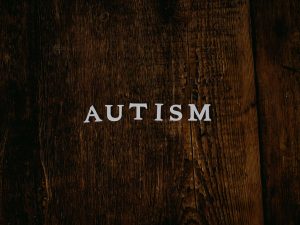Autism, also known as autism spectrum disorder (ASD), is a neurodevelopmental disorder that affects the way the brain processes information and influences the way you interact with others. Symptoms can range from mild to severe and manifest in different ways in different people, which is why it is referred to as a spectrum disorder.
 Most people are diagnosed in childhood, but some are not diagnosed until adulthood. Those who reach adulthood without a diagnosis are most likely living with high-functioning autism and may be unaware that the way they process things is different from the way other people do. Their symptoms may have been subtle enough to be missed as a child, misdiagnosed, or they may have since learned how to mask them.
Most people are diagnosed in childhood, but some are not diagnosed until adulthood. Those who reach adulthood without a diagnosis are most likely living with high-functioning autism and may be unaware that the way they process things is different from the way other people do. Their symptoms may have been subtle enough to be missed as a child, misdiagnosed, or they may have since learned how to mask them.
The greatest discomfort for autistic people can be the social one. For me, I was confused by the way people behaved. – Chris Packham, CBE and National Autistic Society Ambassador
Currently, there is no standard method of diagnosing autism in adults, but to meet the Diagnostic and Statistical Manual of Mental Illness (DSM-5) official criteria, you need to exhibit a least three of the key challenges listed under the domains of social and communication difficulties, repetitive behaviors, restricted interests, and rigidity.
Key Signs of Autism In Adults
Social and communication difficulties
- Social anxiety.
- Difficulty empathizing with other people’s feelings or seeing things from a different point of view.
- Difficulty making friends.
- Prefer doing things alone.
- Difficulty describing your feelings.
- Invent your own descriptive words and phrases.
- Difficulty understanding social rules such as not talking over people.
- Difficulty understanding appropriate behavior such as being quiet in a library.
- Unable to interpret nonverbal messages such as shoulder shrugging, eye-rolling, facial expressions, or body language.
- Take things literally and are unable to understand metaphors or figures of speech.
- Difficulty holding a back-and-forth conversation.
- Tendency to dominate conversations with your thoughts or monologue without paying attention to listener cues.
- Speak in a flat, monotone voice.
- Avoid eye contact.
- Appear to be blunt, rude, or uninterested in others without meaning to.
- Make unintentional social blunders.
- May get close to other people, and/or get upset if someone gets too close or touches you.
- Difficulty controlling emotions or regulating impulsive behavior.
Repetitive behaviors
- Make involuntary noises such as repeatedly clearing your throat or repeating words or phrases.
- Engage in repetitive, self-stimulating behaviors such as flapping your arms, spinning, or rocking back and forth to help calm you.
- Continually talk about the same thing or play the same song over and over.
- Engage in repetitive habits such as tying and untying your shoes multiple times before leaving the house.
Restricted interests or patterns of behavior
- Unable to tolerate sensory overload.
- Oversensitivity to normal sounds or bright lights.
- Fixation on a specific subject and need to know everything about it.
- Become agitated when you’re not able to pursue your interests.
- Superior mathematical, musical, or artistic ability.
- Notice details other people miss.
- Excel at tasks that require logic and detail.
- Difficulty focusing on topics outside your area of special interest.
Rigidity
- Resistant to change.
- Think in terms of black and white, with no shades of gray.
- Organize things in a specific way and get upset if they are moved or rearranged.
- Inflexible thought patterns.
- Difficulty transitioning between activities or switching topics in a conversation.
- Need to do things the same way each time.
- Prone to meltdowns if routines get interrupted, canceled, or changed.
Effect Of Gender On Signs Of Autism in Adults
Men are four times more likely to be diagnosed with autism than women. One of the reasons may be that women’s symptoms tend to be more subtle and masked. Women learn to hide them by imitating the socially acceptable behavior of others to fit in. They also show fewer signs of repetitive behaviors and appear better able to cope with social situations than men.
Benefits Of Counseling
 If you can see yourself in this article on the signs of autism in adults, you may want to consider counseling. Meeting with a trained mental health professional can help provide peace of mind by validating your experience, providing a label for what you have been experiencing, and helping you understand your condition and how it is affecting you.
If you can see yourself in this article on the signs of autism in adults, you may want to consider counseling. Meeting with a trained mental health professional can help provide peace of mind by validating your experience, providing a label for what you have been experiencing, and helping you understand your condition and how it is affecting you.
A counselor can also help you identify and build upon your strengths, improve your communication and social skills, and learn how to make the necessary accommodations to be able to cope.
If you would like to make an appointment to meet with one of the counselors in our online directory, please give us a call.
“ASD criteria and manifestations in adults.” AASPIRE Healthcare Toolkit. autismandhealth.org/?a=pv&p=detail&t=pv_asd&s=asd_asd&theme=dk&#.Jayne Leonard and Alina Sharon. “Everything you need to know about autism in adults.” Medical News Today. Updated November 1, 2021. medicalnewstoday.com/articles/326841.
“Autism”, Courtesy of Annie Spratt, Unsplash.com, CC0 License; “Puzzle”, Courtesy of Curated Lifestyle, Unsplash.com, Unsplash+ License
-
Miranda Otsuka: Author
I strive to create a safe, healthy space for my clients to navigate through life’s challenges in the presence of the Lord as much as they feel comfortable doing so. As a counselor, my goal is to serve you well as I am representing the Lord and allowi...
-
Kate Motaung: Curator
Kate Motaung is the Senior Writer, Editor, and Content Manager for a multi-state company. She is the author of several books including Letters to Grief, 101 Prayers for Comfort in Difficult Times, and A Place to Land: A Story of Longing and Belonging...
DISCLAIMER: THIS ARTICLE DOES NOT PROVIDE MEDICAL ADVICE
Articles are intended for informational purposes only and do not constitute medical advice; the content is not intended to be a substitute for professional medical advice, diagnosis, or treatment. All opinions expressed by authors and quoted sources are their own and do not necessarily reflect the opinions of the editors, publishers or editorial boards of Stone Oak Christian Counseling. This website does not recommend or endorse any specific tests, physicians, products, procedures, opinions, or other information that may be mentioned on the Site. Reliance on any information provided by this website is solely at your own risk.







